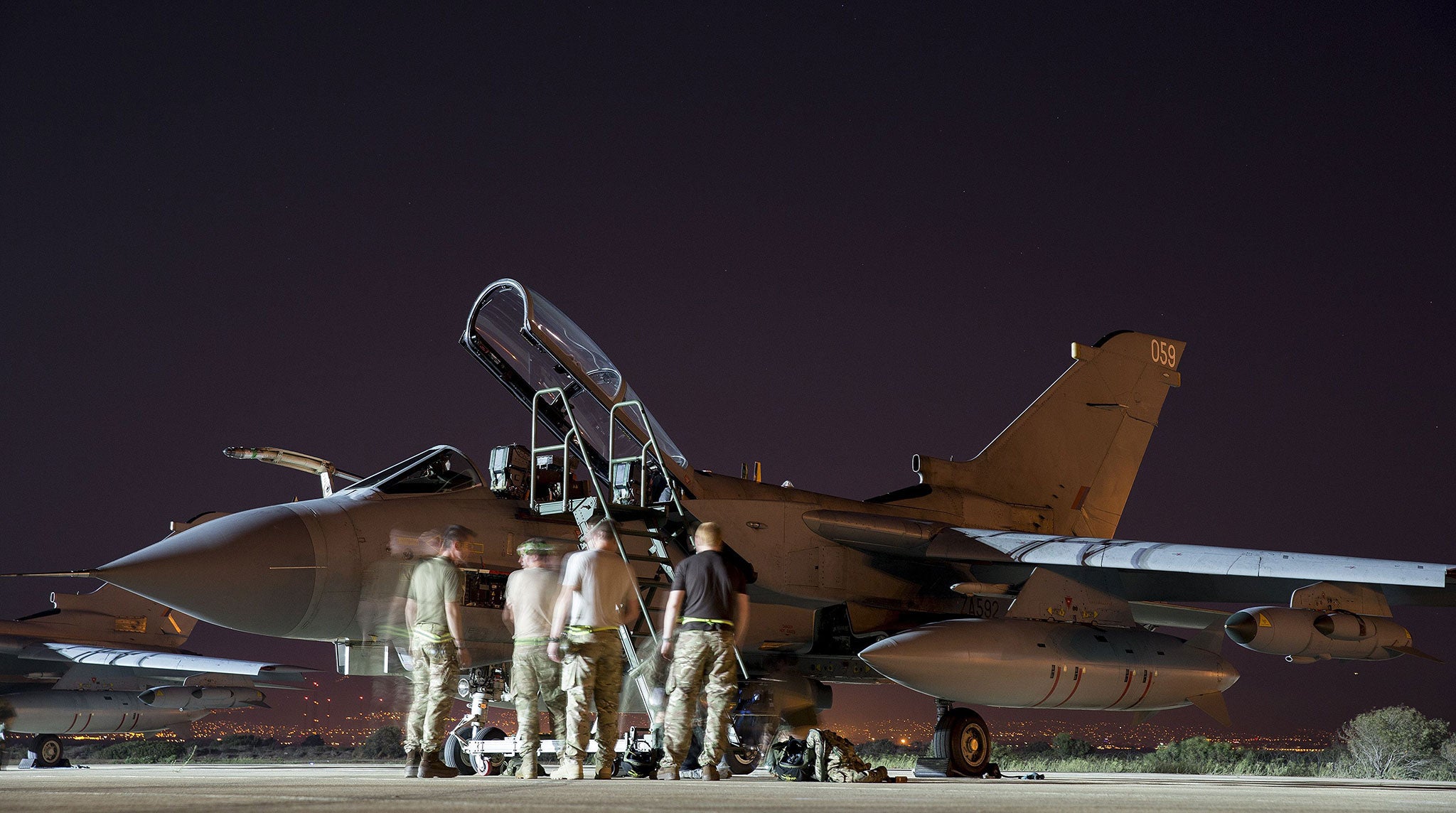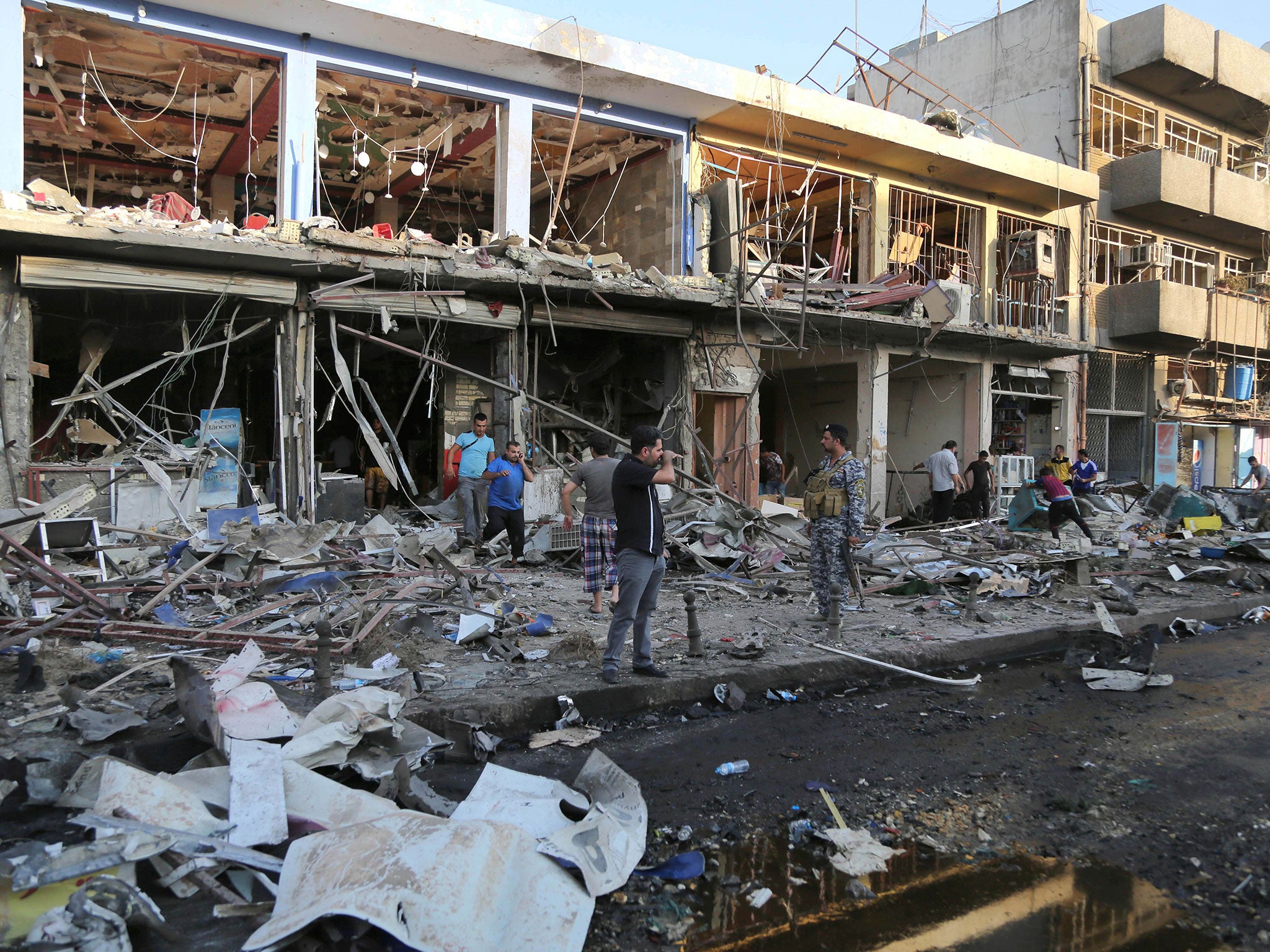Iraq crisis: British forces on their way 'to play role' – but officials rule out military action
Troops could re-enter the country ‘within days’ in mercy mission to protect refugees

Your support helps us to tell the story
From reproductive rights to climate change to Big Tech, The Independent is on the ground when the story is developing. Whether it's investigating the financials of Elon Musk's pro-Trump PAC or producing our latest documentary, 'The A Word', which shines a light on the American women fighting for reproductive rights, we know how important it is to parse out the facts from the messaging.
At such a critical moment in US history, we need reporters on the ground. Your donation allows us to keep sending journalists to speak to both sides of the story.
The Independent is trusted by Americans across the entire political spectrum. And unlike many other quality news outlets, we choose not to lock Americans out of our reporting and analysis with paywalls. We believe quality journalism should be available to everyone, paid for by those who can afford it.
Your support makes all the difference.British military personnel “will play a role” in rescuing thousands of refugees trapped by Islamist fighters in northern Iraq, David Cameron said, after cutting short his holiday to oversee the evacuation.
Downing Street said the mission could begin “within days” and will represent the first time that British troops have been in active service in Iraq since withdrawing from Basra in 2009.
But officials stressed the decision did not represent “boots on the ground”, even though it is likely to involve Special Forces protection, because the operation was humanitarian rather than military. It was reported tonight that US Marines and special forces had landed on the Sinjar mountains, where thousands of the refugees are hiding from the militants.
The Prime Minister also dismissed demands for Parliament to be recalled, saying it was unnecessary at this stage but would be kept under review. Speaking after chairing a meeting of the Government’s emergency-response committee this afternoon, Mr Cameron said: “We need a plan to get these people off that mountain and get them to a place of safety.
“I can confirm that detailed plans are now being put in place and are under way, and that Britain will play a role in delivering them.”
Mr Cameron declined to give any details of the mission – such as whether Chinook helicopters being sent to the region would play a role in any evacuation, or what role Special Forces would play.
Officials said the operation is likely to begin at the weekend and will take several days at least to complete. Some estimate that 35,000 Yazidi refugees are struggling to survive in the Sinjar mountains.
Asked about calls for the UK to follow France in arming Kurdish fighters, who are being outgunned by Isis forces, or to commit British fighter planes to air strikes, Mr Cameron said: “Of course we support the Kurds and we should continue to support the Kurds, and in terms of the ammunition they are getting, Britain is playing a role in helping to get that to them.”
RAF C-130 Hercules transport aircraft have made several drops of supplies to civilians trapped on a mountainside in the autonomous Kurdish region in the north of the country by the Isis advance. Tornado fighters are due to carry out reconnaissance missions of the area and the Chinooks are en route to Cyprus ready for possible deployment in Iraq.
In Washington, Pentagon officials have also been working on plans for the rescue operation. Another 130 military advisers have been sent to northern Iraq to develop options to present to the President, Barack Obama. The team is made up of US Marines and members of American Special Operations Forces.
A US official told ABC News that members of the team had landed briefly on the Sinjar mountains today.
However, the US Defence Secretary, Chuck Hagel, said: “This is not a combat, boots-on-the-ground operation. But, short of that, there are some things that we can continue to do – and we are doing.”
In recent days, thousands of refugees have flooded out of the mountains and into neighbouring Syria. Many have taken shelter at a refugee camp, while others have crossed back into part of Iraq not threatened by Isis.
European Union foreign ministers are to meet tomorrow to discuss the crisis.

Labour welcomed the stepping-up of aid efforts but did not join the calls for direct UK military intervention. The shadow Foreign Secretary, Douglas Alexander, said: “The Government should be working actively with our allies to step up the humanitarian response to the unfolding tragedy on Mount Sinjar.” But while Mr Cameron also called the Iraqi Prime Minister designate, Dr Haider al-Abadi, to express the UK’s support for his “efforts to establish an inclusive government as swiftly as possible”, the situation in Baghdad remained unclear.
The outgoing Prime Minister, Mr Maliki, continued to insist that he will not relinquish power until a federal court rules on what he claims is a “constitutional violation” by the President to replace him with a member of his own party.
Iraqi troops imposed have heightened security in Baghdad. Tanks and Humvees were positioned on bridges and at major intersections, with security personnel more visible than usual as about 100 Maliki supporters rallied at Firdous Square. At least 29 people were killed in bombings around Baghdad today.